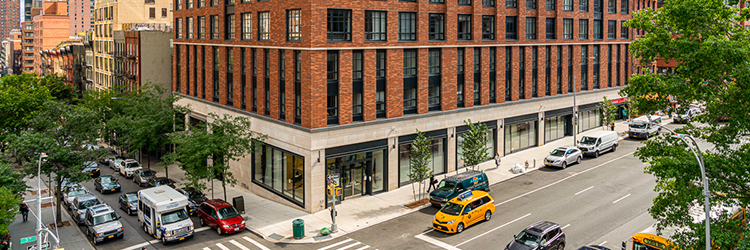News:
Shopping Centers
Posted: November 21, 2011
Question of the Month: How will the Internet affect the retail shopping center industry in the 21st Century?
Everyone in our industry is taking note of the revolution we are witnessing before our eyes. Retail as we know it is changing exponentially every day. Consumer habits have changed and will change more dramatically in these times than they have in the last fifty years. Our children are going to think we are nuts when we tell them that we had to go to the store to buy a book, a music album, or a video. While online retailing only represents 5% of total retail sales today, it is here to stay and the impact it's going to have on our industry is one not to take lightly.
The recession has caused consumers, out of necessity, to become more educated shoppers and has pushed the web's impact to grow even faster. For example, with gas prices the highest level since the oil embargo of the 1970s, shoppers will be able to keep the car parked in the garage while doing their comparison shopping from the comfort of their own home. The Internet is the answer to a person's tightened budget, and in many cases, over-used credit cards. Across the country, developers, retailers and municipalities are going to have to make adjustments to existing and new development plans to the changing perspective consumers have on bricks and mortar shopping.
Our industry has been evolving, whether or not it will be enough is yet to be determined. The "lifestyle center" concepts of the last decade demonstrate how our industry is becoming proactive. Recently, our firm was retained to handle a project on Long Island that I believe will start a revolution for a market that has been stalled by NIMBYs and bureaucracy. The Village of Patchogue's mayor along with the prolific developer, Tritec, have created a concept that has yet to be seen in our region but has had years of success throughout the country. The New Village @ Patchogue is being developed to create an "experience" with a four-story building containing 291 residential units, 36,149 s/f of restaurant/retail, and 18,000 s/f of office space. In addition, there will be a village square that will become the center of the town and attract shoppers and events throughout the region. Already, the buzz of this private/public cooperation has brought an optimistic spirit in this area that has resulted in a decreased vacancy rate. The retail environment we are creating will be about the experience where people will shop, live and congregate.
According to Forrester Research, e-commerce sales will represent 8% of all retail sales in the U.S. by 2014, up from 6% in 2009. This study also exhibits the influence that the web has on the shopper; $155 billion worth of consumer goods were bought online last year, a far larger portion of offline sales were influenced by online research. Forrester estimates that $917 billion worth of retail sales last year were "web-influenced." It also estimates that online and web-influenced offline sales combined accounted for 42% of total retail sales and that percentage will grow to 53% by 2014, when the web will be influencing $1.4 trillion worth of in-store sales.
What the above statistics demonstrate is that the retail bricks and mortar shopping industry must evolve or the vacancy rate in suburban America will grow faster than online retailing. I do believe that even with the long term effect of the internet on the traditional shopping center, especially the "category killer" big-box retail power center, which will be driven to the "endangered species list" in the next decade, the major metropolitan areas, especially N.Y.C. and its suburban satellite areas will continue to have relatively stable rents and low vacancy rates, compared to the rest of the country. The New York MSA has shown a tremendous amount of resilience through the past recession which has been reflected in the retailers' continued expansion into this market despite negative growth in other parts of the country. REIT's have also recognized the strength of this market with cap rates dipping to pre-recessionary levels. As an example, Schuckman Realty has worked on deals in excess of $100 million in investment sales in 2011 with REIT's from around the country looking to expand their presence in this market.
In conclusion, the Internet is here to stay as a factor in the retail bricks and mortar landscape. While this will have a major negative impact on the shopping center industry in the decades to come, the major metropolitan areas like N.Y.C. will be, for the most part, unaffected. The density and buying power of this market, along with the very low retail square footage per capita, in comparison to the rest of the country, will keep vacancy rates low and consistent. As a retail broker, I don't think there is a better market to work in our trade than New York.
Kenneth Schuckman is vice president at Schuckman Realty Inc., Woodbury, N.Y.
Tags:
Shopping Centers
MORE FROM Shopping Centers
2024 Year in Review: William O’Brien, M.C. O’Brien, Inc.
What noteworthy transactions or deals from this year best exemplified key market trends or shifts? I would like to say there was an outstanding transaction for me this past year but 2024 was more a culmination of long-term relationships, most of which continued to transact. Deals were smaller in many cases but we saw robust leasing both on the agency side as well as on the tenant side.

Quick Hits





.gif)

.gif)
.jpg)
.gif)